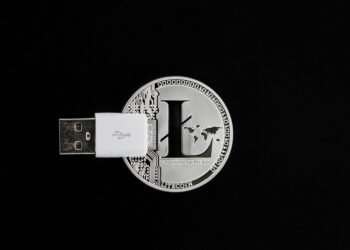Blockchain technology has been making waves in the world of finance and technology over the past few years, with Bitcoin leading the charge as the most well-known and widely used cryptocurrency. But what is blockchain technology, and how is it changing the game when it comes to digital transactions and currency?
At its core, blockchain technology is a decentralized digital ledger that records transactions across a network of computers. Each transaction is stored in a block, which is then linked to other blocks in a chain, creating a secure and transparent record of all transactions. This technology eliminates the need for a central authority, such as a bank or government, to oversee and verify transactions, making it faster, more secure, and more cost-effective.
Bitcoin is the most popular application of blockchain technology, as it allows users to send and receive digital currency without the need for a traditional banking system. Bitcoin transactions are recorded on the blockchain, ensuring that they are secure and cannot be altered. This has made Bitcoin a popular choice for individuals and businesses looking to make transactions quickly and securely, without the need for intermediaries.
One of the key advantages of blockchain technology is its transparency. Because each transaction is recorded on the blockchain and cannot be changed, users can track the history of a transaction from start to finish. This level of transparency helps to prevent fraud and ensures that all transactions are conducted fairly and securely.
Blockchain technology also offers increased security, as each block in the chain is encrypted and linked to previous blocks. This makes it nearly impossible for hackers to tamper with the blockchain and manipulate transactions. As a result, users can trust that their transactions are secure and protected from fraud and theft.
In addition to security and transparency, blockchain technology also offers cost savings for users. Because it eliminates the need for intermediaries, such as banks or payment processors, blockchain technology can reduce transaction fees and processing times. This makes it an attractive option for businesses looking to streamline their financial operations and cut costs.
Overall, blockchain technology and Bitcoin are changing the game when it comes to digital transactions and currency. With their increased security, transparency, and cost savings, they offer a new and innovative way for individuals and businesses to conduct transactions in the digital age. As blockchain technology continues to evolve and grow, we can expect to see even more advancements in the way we exchange and store digital assets.








